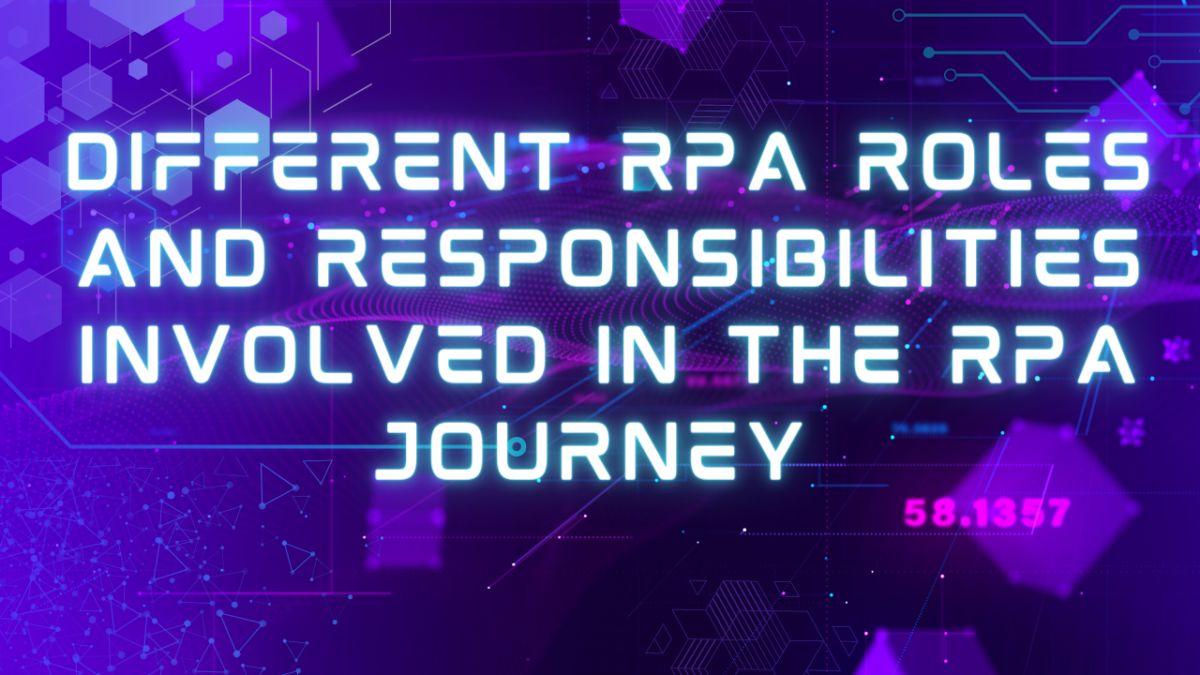
Robotic Process Automation (RPA) is a transformative technology that’s changing how businesses operate. However, for a successful RPA journey, a diverse team with clearly defined roles and responsibilities is required. This article examines the key roles within an RPA team and their contributions throughout the RPA lifecycle.
The RPA project manager orchestrates the entire RPA journey. From initial planning to final deployment, they ensure that the project runs smoothly, on time, and within budget. Key responsibilities of an RPA project manager include:
Project Planning: Defining project goals, creating a timeline, and allocating resources.
Stakeholder Management: Communicating with stakeholders to keep them informed and involved.
Risk Management: Identifying potential risks and devising contingency plans.
Team Coordination: Guiding the team to ensure everyone is working towards the same objectives.
The RPA business analyst plays a crucial role in bridging the gap between business needs and technical solutions. They are responsible for:
Process Analysis: Identifying and documenting the business processes suitable for automation.
Requirement Gathering: Understanding and detailing the business requirements for the RPA project.
Solution Design: Working with the RPA developers to design an effective automation solution.
Testing and Validation: Ensuring the solution meets business needs and operates as expected.
The RPA developer is at the heart of the RPA project, building and testing the automation solution. Their primary duties are:
Automation Development: Designing and coding the bots to perform the identified tasks.
Unit Testing: Checking the bots to ensure they work correctly in a controlled environment.
Error Handling: Incorporating measures to handle potential errors or exceptions in the bot’s workflow.
Documentation: Preparing technical documents explaining the design and functionality of the bots.
The RPA solution architect oversees the technical aspects of the RPA project. Their role revolves around:
Technical Design: Designing the RPA solution’s architecture based on business requirements and technical constraints.
Technology Selection: Choosing the right RPA tools and technologies for the project.
Technical Guidance: Providing technical leadership to the RPA developers.
Integration: Ensuring the RPA solution integrates seamlessly with existing systems.
The RPA tester ensures the quality and accuracy of the automated solution. They are involved in:
Test Case Design: Creating test cases based on business requirements and process workflows.
Functional Testing: Checking whether the automated processes meet the specified business requirements.
Performance Testing: Assessing the efficiency and speed of the bots.
Reporting: Documenting test results and providing feedback to the development team.
The RPA infrastructure engineer ensures that the technical environment supports the RPA solution. Key responsibilities include:
Infrastructure Setup: Setting up and configuring the necessary hardware and software for the RPA solution.
Maintenance: Regularly updating and maintaining the RPA environment to ensure smooth operations.
Troubleshooting: Resolving technical issues that may arise during the RPA project lifecycle.
The RPA process owner is the stakeholder in charge of the process being automated. They play a significant role in:
Process Expertise: Providing detailed knowledge about the process being automated.
Solution Review: Validating the automated solution from a business perspective.
Change Management: Helping the team adapt to the changes brought about by automation.
Understanding the roles and responsibilities in an RPA journey is critical to the successful implementation of automation projects. Assembling a well-structured team with clearly defined roles not only streamlines the process but also maximizes the benefits of RPA. In the end, it is the synergy of these roles that paves the way for a transformative RPA journey. The RPA journey has witnessed significant growth and transformation over the years, revolutionizing various industries and streamlining complex business processes. With the advent of mobile application development, RPA has extended its reach to the fingertips of users, enabling seamless automation on the go. Organizations embarked on their RPA journey by recognizing the potential of automating repetitive tasks and optimizing operational efficiency.